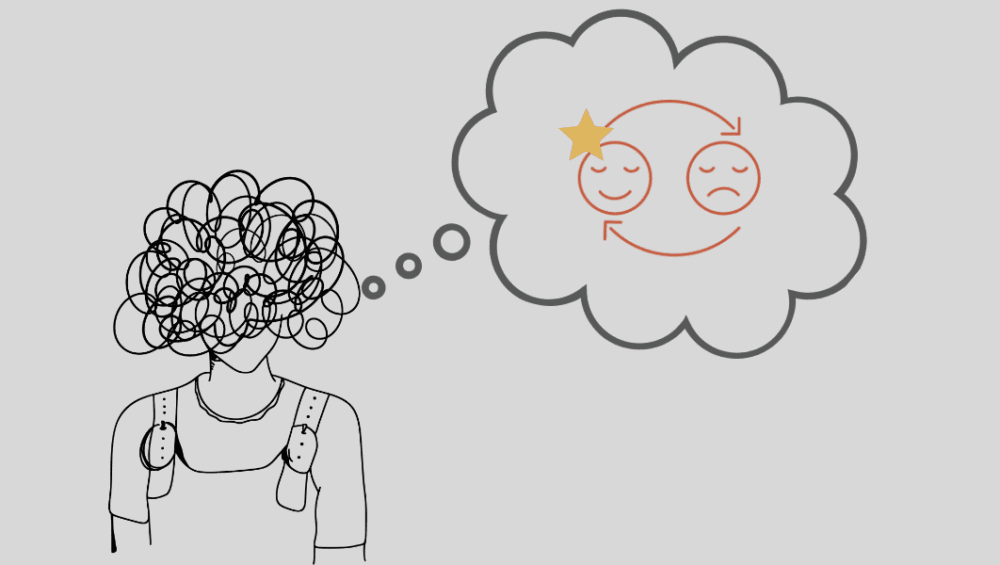Stress is a natural response to a perceived threat or challenge. It can be both positive and negative and affects individuals differently. Understanding what stress is, why it can be a big problem, and what you can do about it is a great place to start in developing coping mechanisms that can help manage stress levels in a healthy way.
Stress Defined
Stress is commonly defined as physical, mental or emotional strain or tension. However, we all experience stress but we may experience it in very different ways. Stress is a reaction to a situation where a person feels anxious or threatened. Learning healthy ways to cope with stress can reduce stressful feelings and symptoms.
The three stages of stress are:
- Alarm: the body recognizes a stressor and releases hormones to prepare for a fight or flight response.
- Resistance: the body continues to release hormones to cope with the stressor.
- Exhaustion: If the stressor persists, the body enters the exhaustion stage, during which it can no longer cope and may experience physical and emotional burnout.
Why is Stress Such a Big Problem?
Stress can be a big problem because it can impact our physical and mental health, leading to issues such as anxiety, depression, high blood pressure, and heart disease. It can also negatively affect our relationships and work performance. It’s important to find healthy ways to manage and reduce stress in our lives. Stress has become a modern-day stress epidemic. We need open discussions on the impact of stress and remove the guilt, shame, and stigma around mental health.
If trends tell us anything, it’s that it’s not necessarily getting better. 55% of Americans are stressed during the day, compares to 35% globally (143 countries), and according to the American Psychiatric Association, 26% of respondents anticipate they will be more stressed in 2023 and their mental health will be worse.
Stress statistics (as researched by the American Institute of Stress) clearly indicate we are not alone in experiencing stress:
- 33% report feeling extreme stress
- 77% experience stress that impacts their physical health
- 73% have stress that impacts their mental health
- 48% have trouble sleeping because of stress
What Can Stress Look and Feel Like?
Because we are each unique, we respond to stress differently. Common ways people respond to stress include:
- Disbelief, shock, and numbness
- Feeling sad, frustrated, and helpless
- Difficulty concentrating and making decisions
- Headaches, back pains, and stomach problems
- Smoking or the use of alcohol or drugs
While most of us feel some sort of stress in our lives, chronic stress can cause long-term effects that manifest physically. Prolonged exposure to stress can lead to a variety of negative health effects, such as anxiety, depression, insomnia, high blood pressure, heart disease, and a weakened immune system. It’s important to find ways to manage and reduce stress to prevent long-term complications.
The Science Behind Stress
The science behind stress is complex and involves various physiological and psychological responses in the body. When we experience stress, our bodies release hormones such as cortisol and adrenaline, which trigger the “fight or flight” response. This response can be helpful in short-term situations, but prolonged exposure to stress can have negative effects on our health, including increased risk for certain diseases and mental health disorders. Once the perceived threat that triggered the fight or flight response is gone, the nervous system can fail to turn back to normal. Understanding the science behind stress can help us better manage it and maintain our well-being.
Stressful situations activate our flight or flight response, which can sometimes the nervous system can get stuck.
For more on stress, read “The Hidden Effects of Stress on Your Health” written by one of the electroCore founders. Truvaga utilizes the core electroCore technology.
28 Ways to Help Manage Stress
- Be kind – do a random act of kindness.
- Go for a walk.
- Create a simple to-do list that breaks a project down into manageable tasks.
- Journal prompt ideas: list 3 things that make you smile, list of things you’re looking forward to (big or small), your favorite memories, and what you are grateful for.
- Soak in a bath with Epsom salts.
- Reach out to a friend.
- Meal prep healthy meals for the week.
- Start a meditation practice.
- Minimize news-watching.
- Pick flowers for a friend (and for you)!
- Clean your windows and drapes and let the sunshine in.
- Play your favorite song loud, and dance like no one is watching!
- Try a new healthy recipe.
- Drink more water.
- Read a good book.
- Create a bedtime routine.
- Plant seeds or buy a plant (green is good).
- Tease your brain with things like crossword puzzles, sudoku, or wordle.
- Clean or organize a space in your home.
- Volunteer to help others in need.
- Learn something new – Watch a Ted Talk for ideas.
- Do jumping jacks or skip.
- Detox from digital devices.
- Write a letter to your future self.
- Learn a new language.
- Smile at a stranger.
- Pet a dog.
- Stimulate your vagus nerve.
Why Your Vagus Nerve is Important in Managing Stress
The vagus nerve is the longest and most complex cranial nerve in your body, wandering from the brain to your abdomen. Some might say it’s your body’s natural superpower since it plays a crucial role in many bodily functions, including digestion, heart rate, immunity, and stress.
One of the essential functions of the vagus nerve is to balance your nervous system. It does this by regulating your “fight or flight” and “rest and digest” responses within the sympathetic and parasympathetic areas of your nervous system.
Stimulating your vagus nerve is a great way to rebalance and reset your nervous system!
Why Truvaga is a Great Way to Stimulate Your Vagus Nerve
While there are many ways to stimulate your vagus nerve, Truvaga offers a quick and easy way to get the job done. A 2-minute session in the morning, and another 2-minute session before bed.
Truvaga is a revolutionary handheld vagus nerve stimulator that reduces stress by using our proven technology to quickly and gently activate your vagus nerve. It’s worth adding to your self-care toolbox.
Try Truvaga risk-free today with our 30-day money-back guarantee. So you too can feel the benefits of our vagus nerve therapy.






